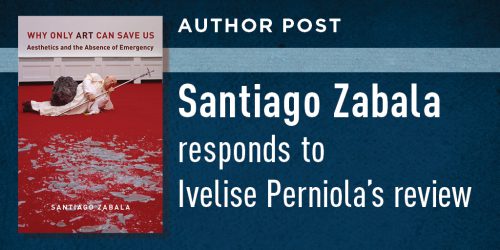Piketty and the Pope — A Post by Santiago Zabala
“Although Piketty will probably continue to teach economics in France instead of moving into the Vatican, the Pope now has an economist whom he can rely upon when he pontificates from Rome, regardless of all accusations of Marxism.”—Santiago Zabala
Over the past couple of years, Thomas Piketty, author of Capital in the Twenty-First Century, and Pope Francis have become two of the most high-profile critics of the current capitalist economic system. As Santiago Zabala, co-author of Hermeneutic Communism: From Heidegger to Marx, points out, this has brought them condemnation from conservatives like Rush Limbaugh, who have accused Piketty and the Pope of Marxism.
In his essay Piketty and the Pope, and why Marx is back, Zabala argues that being labeled a Marxist is “simply a sign that Marx has returned from the remnants of communism to invite academics, activists, and even clerics to seek in his thought solutions to the ongoing global recession.” Zabala goes on to examine the ways in which Piketty’s economic analysis and his call for a progressive global tax on capital or wealth address some of the concerns Pope Francis has about the growing economic inequality and the current economic system. Zabala writes:
Piketty seems to have provided both historical and economic justification for the Pope’s concerns over an “economy of exclusion” and a “financial system which rules rather than serves.” If capitalism has become such an economic system it is not simply because of its natural drift toward high inequality, which the author demonstrates through detailed historical analysis, but also because capitalism permits the concentration of wealth to perpetuate from one generation to the next.
Zabala concludes by writing:
If Piketty seems to have become Francis’s economist, it is not simply because he provides a solution the Pope would most likely endorse, but also because he has moved away from the scientific nature of his discipline, that is, economic determinism. After all, the French economist believes that the “resurgence of inequality after 1980” was not caused simply by capitalism’s inevitable drift towards inequality but also by “the political shifts of the past several decades, especially in regard to taxation and finance.” The Pope’s call for a financial system that “serves instead of rules” is directed against this political shift, which has always avoided financial reforms such as those suggested by both men.
Although Piketty will probably continue to teach economics in France instead of moving into the Vatican, the Pope now has an economist whom he can rely upon when he pontificates from Rome, regardless of all accusations of Marxism. These accusations, then, are not only necessary to bring together economists and the Holy See but also serve to mark a turning away from capitalism’s acceleration of inequality for anyone so accused, regardless of our faith or social status.




